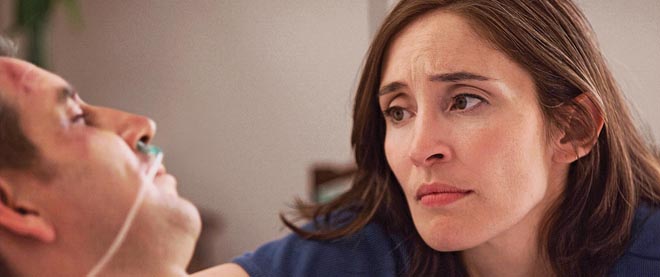Jane Heller and how hard it is to care about a sick husband
When spouses become caregivers, it’s not always easy to stay positive
Share

After her father died of brain cancer and her mother remarried only to nurse another sick husband, Jane Heller vowed to marry for health. The last thing she wanted was a man with a medical problem. She joked that she’d rather marry a crocodile than become a caregiver. Her plan didn’t work out.
Heller, a Santa Barbara-based novelist, fell in love with Michael Forester, a photographer who was diagnosed as a child with Crohn’s, a chronic inflammatory bowel disease that can feel like a knife to the gut during flare-ups, and can result in emergency surgery.
Heller writes in vivid detail about their lives in a new support book, due out Nov. 1, called You’d Better Not Die or I’ll Kill You: A Caregiver’s Survival Guide to Keeping You in Good Health and Good Spirits.
“I’d drive him to various ERs while he barfed into garbage bags,” she writes. When one of Forester’s incisions sprung a leak at home, Heller discovered something disgusting oozing from the stitches. Her husband had turned a shade between white and green, and it was back to the ER for another operation.
His illness and her resentment at not having a normal life was making Heller sick. “To the outside world, I was a saint,” she writes. Privately, she wondered, “Who is this person? One minute he was the handsome, gentle man I’d married; the next he was pumped up with steroids, bloated and moon-faced, screaming obscenities, and punching walls. One minute I was praying he wouldn’t die; the next minute I was hoping he would die.”
Thinking such dark fantasies is perfectly normal, she reassures caregivers. “But here’s the thing . . . resign yourself to getting fed up with the whole mess on occasion, and confide in people who won’t look at you as if you’re Casey Anthony.” Once you articulate the dark thoughts to a friend or therapist, “you’ll feel better,” she promises.
The temptation to have an affair is also normal, an idea that consumed Heller when an ex-boyfriend sent an email after a decade of silence. “The email was merely a ‘Hello, how are you?’ but it nearly made me pass out with excitement,” writes Heller. At the time, Forester was in hospital for the fourth time in four months.
On the phone from L.A., Heller said the email made her feel like she was 14 again. She went straight to her makeup case and put on lipstick even though she was alone in the house and it was 10 p.m. After several emails back and forth, she didn’t follow through—it was too complicated, she said—but many caregivers do, often hooking up with fellow caregivers.
In the book, psychotherapist Tina Tessina adds, “If it’s not hurting anyone, and you’re not being obvious about it, it might even make it possible to be more tender and loving to your partner.”
All caregivers need escapes and “brain breaks,” writes Heller, but they’re also twice as prone to depression. Heller interviewed one psychologist, Michael Seabaugh, who worries about the number of strung-out caregivers. “I’m talking about the widespread abuse of the medicine cabinet of their elder loved one,” he says in the book. “That aged person is getting dosed with some kind of happy pill or sedation and we’re seeing more and more caregivers help themselves to what’s there.”
Years ago, when Heller was having trouble sleeping, she became a “Xanax aficionado.” The day she appeared on the Today Show to promote her novel, she took two because she was so freaked out. “When the segment began, Katie Couric said, ‘So, Jane, how does it feel going from being a promoter of authors to being one yourself?’” Heller said, “I don’t know. I’m heavily sedated.” Couric laughed, but Heller cringes still. These days she stays away from prescription drugs and sticks to one glass of wine a night, tops.
“Caregivers have to look after themselves,” she says. “That’s why my book includes healthy recipes and tips on meditation.” On the bright side, she writes,“I now leap into action when a friend is going through a medical crisis—even if it’s just to say, ‘I’m thinking of you.’”